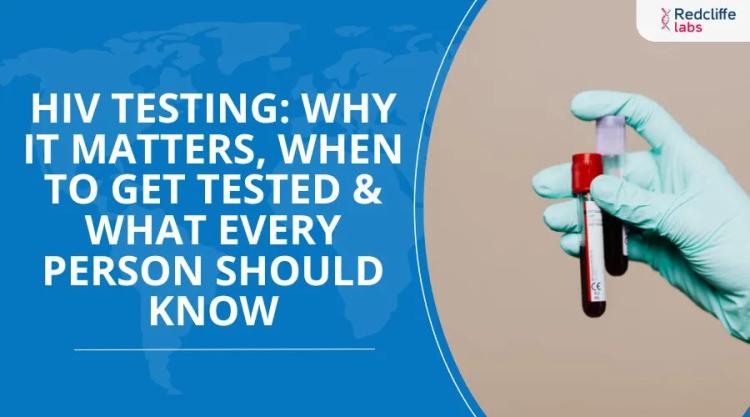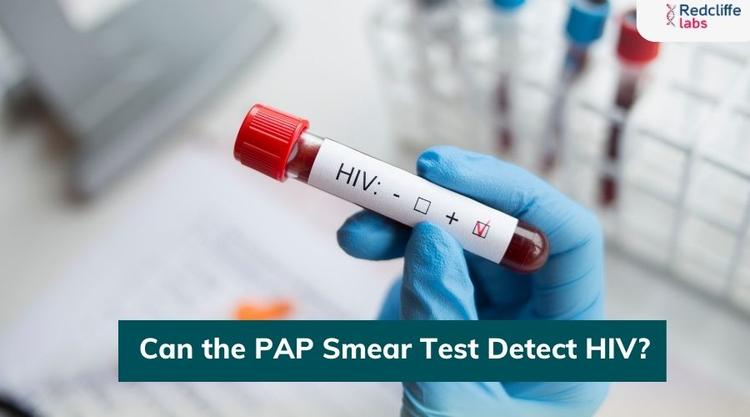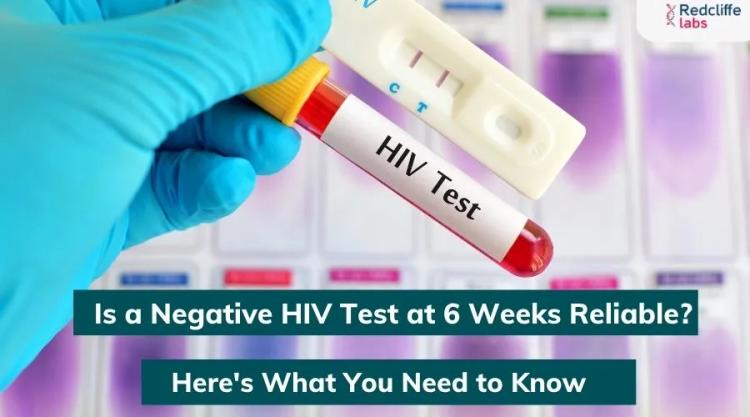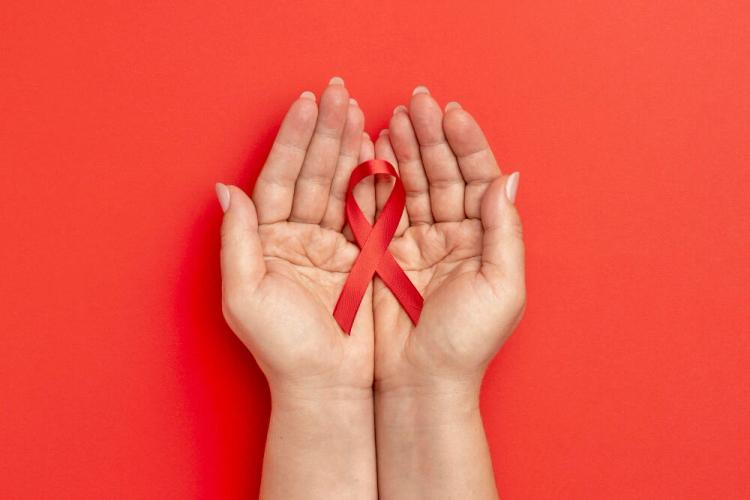HIV/AIDS: Signs, Symptoms, And Treatment

Medically Reviewed By
Dr Divya Rohra
Written By Meenakshi
on May 5, 2022
Last Edit Made By Meenakshi
on Jan 8, 2025
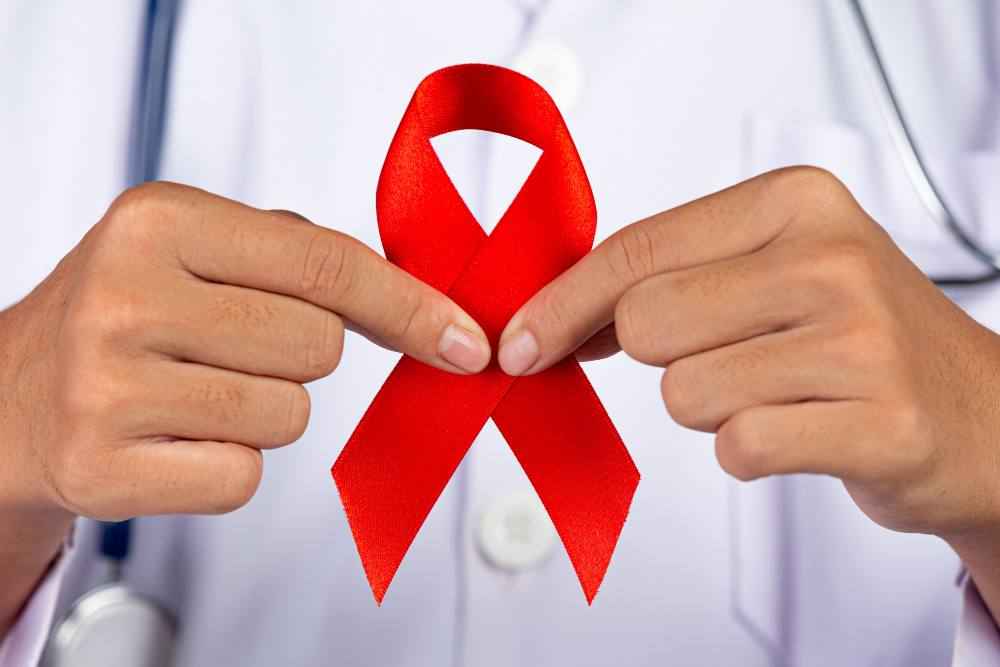
Key Facts -
- As per the WHO report, there are 37.7 million people who have HIV worldwide
- Its early symptoms are similar to the flu, such as fatigue, sore throat, muscle, and joint pain within the first month. But a lot of people won't get any symptoms, so it is crucial to get tested.
- It cannot spread through sweat, saliva, or urine.
- If left untreated leads to AIDS, a life-threatening disease.
- The most effective treatment for HIV is antiretroviral therapy.
What Is HIV?
HIV, the human immunodeficiency virus, is a retrovirus that enters our body, multiplies its number, and attacks the white blood cells, which leads to a weak immune system.
It is a slow-killing virus making a person more vulnerable to other infections and diseases. It mainly spreads through the contact of bodily fluids of an infected person, which can be blood, semen, vaginal fluids, anal fluids, or breast milk.
What Is AIDS?
As HIV progresses over time and is left untreated, it results in AIDS (acquired immunodeficiency syndrome).
It is the late stage of HIV infection, in which the immune system has been severely damaged, making it incapable of fighting off most infections and diseases.
The common infections that occur at this stage due to a compromised weak immune system are:
- Tuberculosis
- Pneumonia
- Candidiasis, an infection caused by a fungus
- Invasive cervical cancer
- Cytomegalovirus, a type of herpes virus
- Toxoplasmosis
What Causes HIV?
HIV is an infection caused by a virus. This virus gets spread through body fluids like blood, vaginal fluid, rectal fluid, and semen from the infected person.
The major causes of HIV are:
- It is caused by having vaginal, anal, and oral sex with an infected person. The virus gets into the body through mouth sores and small tears in the anus and vagina. These tears develop through sexual activity.
- Sharing needles and syringes with an infected person also helps the virus to get spread.
- The virus can be spread from mother to baby during pregnancy, delivery, and breastfeeding.
- Blood transfusions also transmit the virus.
- Many STIs (Sexually Transmitted Diseases) contribute to developing sores in the genitals. These sores help in transferring the virus to our body.
What Are The Symptoms Of HIV/AIDS?
People affected by HIV do not have many symptoms at the very initial stage. There are often flu-like symptoms, ranging from mild to severe, which come and go, just like those from the flu.
Early HIV Symptoms-
Some of the early symptoms of HIV are:-
At this early stage, the virus multiplies rapidly, so it spreads more quickly and affects the body's immune system.
- Fever
- Muscle ache
- Irritation, itching, dryness, or pain in the throat region
- Joint pain
- Swollen glands
- Abdominal pain
- Headache
- Rashes over the body
- Diarrhea
Chronic HIV Symptoms-
After completing the early stages, the symptoms of HIV become peculiar, and in addition to the early symptoms the body also experiences the following symptoms:
- Fatigue
- Shingles (herpes zoster)
- Oral yeast infection (thrush)
- Pneumonia
- Sudden weight loss
- Swollen lymph nodes
- Night sweats
How To Diagnose HIV?
As there is no cure or vaccine available for HIV and the symptoms are mild. It is best to get HIV Antibody Test done by authorized Pathology Laboratory.
Various tests are available for diagnosing HIV, including:
Antibody screening test:-
- In this test, the protein made within 2 to 8 weeks of HIV infection is evaluated. These tests are mostly accurate and are also called ELISA and immunoassay tests. Also, after the potential exposure to HIV, testing for HIV positives and HIV negatives will need to be repeated after one to three months.
- NAT (Nucleic Acid Test):- Also known as RNA test. It checks for viruses. and your doctor would use this test if you are at high risk.
- Antibody/Antigen Combination Tests:- These tests give results quicker than antibody screening tests. The rapid version of these tests took only 20 minutes.
Some other tests that determine the stages of HIV are:-
- CDT4 T cell count
- Viral Load (HIV RNA) tests.
- Drug resistance.
Who Is At Risk Of Contracting HIV?
There are some activities and conditions putting you at high risk of having an HIV infection.
Some of them are-
- Having unprotected sex (anal or vaginal)
- Being infected with syphilis, gonorrhea, bacterial vaginosis, herpes, and other STDs
- Sharing used syringes, needles
- Accidental needle sticks among health care workers
- Unsterile tattooing or piercing
- Unsafe blood transfusions and tissue transplantation
- An infected mother giving birth to a child
What Are The Complications Of HIV?
If HIV is not diagnosed on time, mild symptoms can become severe, and the virus can progress into AIDS, which poses a life-threatening threat.
So, some of the complications of HIV are:
- People having HIV infections are more likely to have opportunistic infections due to weaker immune systems.
- People can develop AIDS wasting syndrome. Their weight drops dramatically.
- It is also possible for people to develop Pneumocystis pneumonia (PCP) in which their lungs become infected.
- Lymphoma
- Tuberculosis
- Cervical cancer
- Psychotic Disorders
- Retinopathy (Eye disease)
- Neuropathy (Nerve disease)
- Cardiac problems
What Is The Management Of HIV?
There is no cure for HIV/AIDS. Neither a medicinal treatment nor a vaccine is there to manage HIV/AIDS.
But the group of antiretroviral medicines can stop the fast multiplication of viruses in the body that helps the immune system to repair and to prevent further damage.
These medicines come in tablet form which needs to be taken every day.
Other than antiretroviral medicines some other practices that help manage HIV/AIDS are:
- Regular checkups, chest X-rays, and various tests for pathogens must be conducted.
- Always listen to your doctor. Skipping one day's medicine can cause problems. Be sure to take your medicines on time every day.
- Psychosocial support and counseling would also be beneficial.
- Daily exercise
- Get tested for other STIs as well
- Antiretroviral drugs cause diarrhea, weight loss, and micronutrient deficiency, so a nutritionally balanced diet is essential.
What Are The Preventive Measures For HIV?
What Are The Preventive Measures For HIV?
HIV is typically spread by people who don't know they are infected with HIV.
So it is always necessary to protect yourself by taking some preventive measures like:
- Avoid unprotected sex until you are sure that you and your partner are not infected with HIV
- Before having sex always use a latex condom. Make sure to use one condom for one time only.
- Before having sex with your partner, make sure you both are tested for HIV or other STI's. Get tested if you have not tested before having sex.
- Avoid sex with multiple partners as it increases the risk of getting an HIV infection or STI's.
- Do not take drugs or alcohol as it makes people share needles.
- Use new and sterile syringes each time.
What Are Some Myth Busters About HIV Infections?
- HIV does not spread by mosquitoes, ticks, and other insects.
- It is a myth that HIV is spread by hugging and sharing food with an infected guy.
- Sexual activities that don't involve the exchange of body fluids are safe to do.
- The virus doesn't transmit through the air either. As the virus cannot survive outside the body, you should not worry about having a friend with HIV.
What Can We Do To Help You Deal With HIV/AIDS?
The need for early detection of HIV is of the utmost importance for early yet effective treatment and as well as to reduce the life-threatening complications.
So, Redcliffe Life Diagnostics with its wide range of diagnostic tests offers fast and affordable HIV diagnostics for early detection.
Also, we offer fast lab results, and a 24-hour patient help desk, so you can get the test conveniently.
